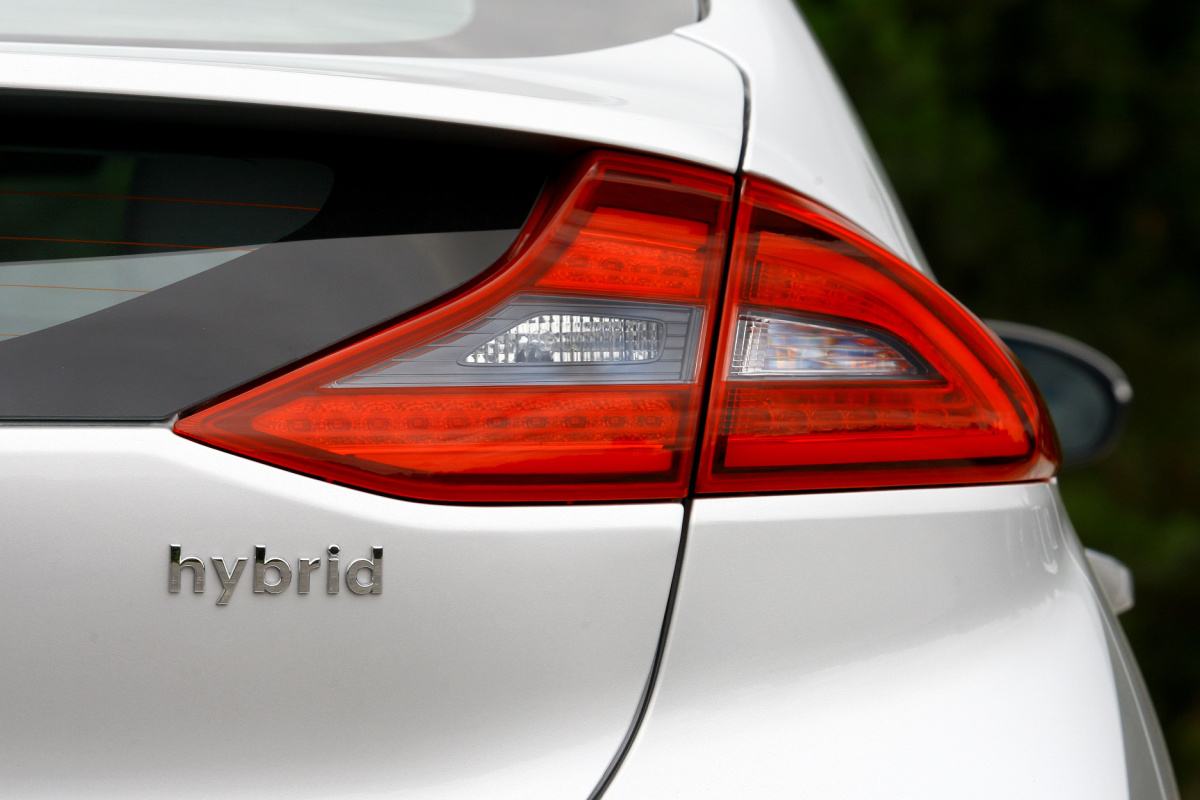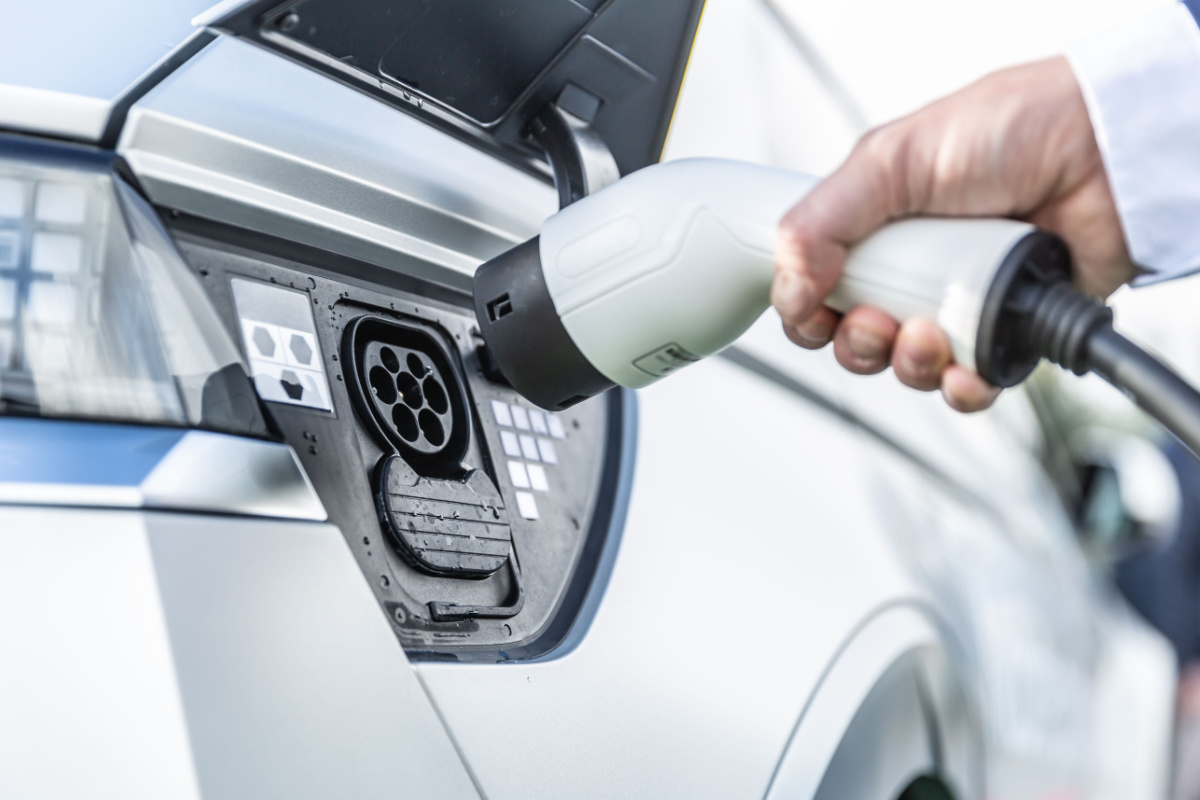Hybrid Cars vs. Electric Cars: Side-by-Side Comparison
Are you looking to switch to a greener, more cost-effective driving experience? With the automotive world rapidly evolving, choosing between hybrid and electric cars can feel like navigating a road with many turns. With this article, you’ll gain key insights and practical tips to park the perfect eco-friendly vehicle in your garage.
So, buckle up, and let's embark on a journey to discover which option – hybrid vs. electric – best accelerates your drive toward a sustainable future without skidding on style, cost, or efficiency.
Overview of Hybrid and Electric Cars
Building on our journey towards sustainable driving, it's time to explore the nuts and bolts: how do hybrid and electric cars function?

Hybrid Cars: Hybrid vehicles are a smart combo of old and new. They marry a conventional gas engine with an electric motor, offering improved fuel efficiency and fewer emissions than traditional cars. A bonus? They recharge their batteries through driving, so plugging in isn't always necessary.
Electric Cars (EVs): Electric vehicles are the pure electric option. Running solely on electricity stored in batteries, they eliminate gas usage and tailpipe emissions. Charging an EV requires an external power source and can take longer than refueling a gas car, but the trade-off is a quieter, smoother drive, free from engine noise.
What is the Difference Between Hybrid and Electric Cars?
As we cruise from the basics into the finer details, let's rev up our understanding with a comprehensive comparison table. Here’s an overview of the main differences between hybrid and electric cars:
|
Feature |
Hybrid Cars |
Electric Cars |
|
Power Source |
Utilize both an internal combustion engine and an electric motor powered by a battery and gasoline |
Powered solely by electric motors using energy stored in batteries |
|
Fuel Usage |
Use both gasoline and electricity; less fuel-dependent compared to conventional vehicles |
Do not use gasoline or diesel; rely entirely on electricity |
|
Charging Needs |
Do not require external charging for the electric battery as it is charged through regenerative braking and the internal combustion engine |
Require charging at home or public charging stations; charging frequency depends on the battery size and usage.
|
|
Emissions |
Lower emissions compared to traditional internal combustion engine vehicles, but higher than EVs due to partial reliance on gasoline |
Zero tailpipe emissions as they do not burn fuel |
|
Driving Range |
Average range of 600 miles without refueling/recharging, ideal for longer trips |
Average range of 200 to 300 miles on a full charge, though improving rapidly with technology |
|
Maintenance |
Require more maintenance than EVs but less than traditional vehicles; regular engine-related servicing is needed |
Lower maintenance requirements due to fewer moving parts and no need for oil changes |
|
Initial Cost |
Generally lower upfront cost than EVs, with average prices ranging around $25,000 to $35,000 |
Higher initial purchase price around $35,000 to $55,000 but eligible for government incentives |
|
Fuel Efficiency |
Averaging 40-50 MPG |
Achieve about 100 MPGe. MPGe compares the energy consumption of electric vehicles with that of gasoline-powered vehicles. A higher MPGe rating indicates higher energy efficiency. |
|
Technology and Features |
Advanced features such as regenerative braking and automatic start-stop systems, but typically less tech-focused than EVs |
Often equipped with the latest technology and connectivity features such as autonomous driving capabilities, high-resolution touchscreen infotainment systems, and integrated vehicle-to-grid (V2G) communication |
|
Environmental Impact |
Better than conventional cars but worse than EVs. The manufacturing process and partial gasoline use contribute to their environmental footprint |
Lower overall environmental impact, especially if charged with renewable energy. However, battery production has environmental costs |
Hybrid or Electric Cars?
Deciding whether a hybrid or an electric vehicle (EV) suits your needs hinges on several factors. Let's delve into specific scenarios where one might be more advantageous than the other.
When Is Hybrid Car Better?
- Longer Range and Convenience: Hybrids shine for frequent long-distance travelers or those in areas with sparse charging stations. They blend fuel and electric power, ensuring you can travel long distances without worrying about finding a charging spot. A notable example is the Toyota RAV4 Hybrid's journey from Singapore to Thailand and back (around 609 miles) on a single tank of fuel. This journey, including expressway driving, off-roading, and city traffic, showcased the hybrid's remarkable efficiency and suitability for varied long-distance travel. However, the upcoming Tesla Roadster will have a 620-mile range, soon rivaling the range of hybrids.
- Lower Upfront Costs: If you're watching your budget closely, hybrids often have a lower price tag than EVs. They offer a more affordable entry point into eco-friendly driving. For instance, models like the Honda Insight start at around $25,000, and the Toyota Prius Prime at about $28,000. In contrast, electric cars with higher ranges, like specific Tesla models, can start over $60,000. Even a relatively affordable EV like the Chevy Bolt begins in the mid $30,000s but has a limited range of 259 miles. This price disparity highlights hybrids as a cost-effective choice for eco-friendly driving.
- Familiarity and Flexibility: Hybrids function much like traditional cars with added benefits. They're an excellent choice for those who want to step towards greener technology without completely letting go of the familiar gasoline engine. Additionally, hybrids eliminate the range anxiety associated with EVs and provide flexibility for different driving habits, from daily commutes to long trips.
- Less Dependency on Charging Infrastructure: While EVs require access to charging stations, hybrids rely less on this infrastructure due to their ability to use gasoline. This makes hybrids particularly advantageous in areas where charging infrastructure is still underdeveloped or for individuals who frequently travel to such regions. Hybrids can be refueled at any gas station, just like traditional cars, making them more practical for long trips or in rural areas.
When Is Electric Car Better?

- Environmental Impact: For the eco-conscious, EVs are a top choice. Running solely on electricity, they cut down emissions to zero, making a significant positive impact on the environment. The MIT Climate Portal highlights that EVs create fewer carbon emissions over their lifetimes than gasoline cars. Specifically, the U.S. Department of Energy found that EVs produce about 3,932 lbs. of CO2 per year, significantly less than the 11,435 lbs. for gasoline vehicles.
- No Gas Costs: Electric vehicles (EVs) offer significant fuel savings in the long run. On average, electricity costs to charge an EV are around four to five cents per mile. For gasoline cars, it costs about 12.5 cents per mile for gas. Savings are even greater for those with access to affordable power sources like home solar panels. For example, Californians driving 520 miles weekly and charging solar can save $4,500 annually on fuel costs.
- Maintenance Savings: Electric vehicles also cut down on maintenance expenses. They don't need oil changes or complex engine checks like traditional cars because fewer parts could break down. On average, EV owners can save up to $1,000 yearly on maintenance.
- Government Incentives and Discounts: While most dealerships charge above the MSRP due to higher demand, many governments offer incentives to encourage EV adoption. These can include tax credits, rebates, and discounts on purchase prices. In the U.S., the federal government offers a tax credit of up to $7,500 for new EV purchases. Some states have additional incentives, like California's Clean Vehicle Rebate Project, offering up to $4,500 in rebates. Also, New York's Drive Clean Rebate provides up to $2,000 off the purchase or lease of a new EV. These incentives can significantly reduce the upfront cost of an EV, making it a more attractive financial choice.
For a deeper understanding, explore our detailed analysis of the pros and cons of electric cars.
Insurance for Hybrid and Electric Cars
Shifting gears towards insurance, the costs for covering hybrid and electric vehicles are key factors to consider on your road to eco-friendly driving. Many insurers primarily determine your premium based on your driving history, but the make and model of your vehicle also play a factor in your rates.
Contrary to popular belief, EVs cost about the same to insure as gas vehicles. Annual premiums for electric vehicles average around $1,600. Previously, EVs cost 15% more to insure than gas ones, but these numbers have dropped in the last two years. Unfortunately, hybrid vehicles cost, on average, 7% more to insure annually.
However, insurance rates are becoming more competitive. With the growth of specialized EV insurance providers, policies are increasingly designed to reward the environmentally conscious driver. So for drivers looking for affordable car insurance rates, this can include discounts for low-mileage driving, owning a home charging station, or using renewable energy sources.
Bottom Line
Which is better: hybrid vs. EV? Hybrids are cost-effective and great for long distances, while electric cars lead to eco-friendliness and technology. Your choice between electric vs. hybrid cars should align with your personal and environmental priorities, lifestyle needs, and financial considerations.
Sources
- SolarReviews. “Hybrid vs. Electric Cars: 2023 Cost Guide.” Accessed Dec. 6, 2023.
- Massachusetts Institute of Technology Climate Portal. “Are electric vehicles definitely better for the climate than gas-powered cars?” Accessed Dec. 6, 2023.
- Clean Energy Group. “The EV Revolution: Cost, Performance, Safety, and Environmental Impacts.” Accessed Dec. 6, 2023.
- SolarReviews. “How much can an electric car save you in 2023?” Accessed Dec. 6, 2023.
- Clean Vehicle Rebate Project. “Clean Vehicle Rebate Project.” Accessed Dec. 6, 2023.
- New York State Energy Research and Development Authority. “Drive Clean Rebate for Electric Cars.” Accessed Dec. 6, 2023.
- Money Geek. "How Much More Do Electric Vehicle Owners Pay for Insurance?" Accessed Dec. 6, 2023.
- Car and Driver. "Are Hybrids More Expensive to Insure? All You Need To Know." Accessed Dec. 6, 2023.



